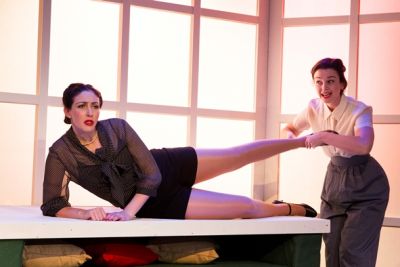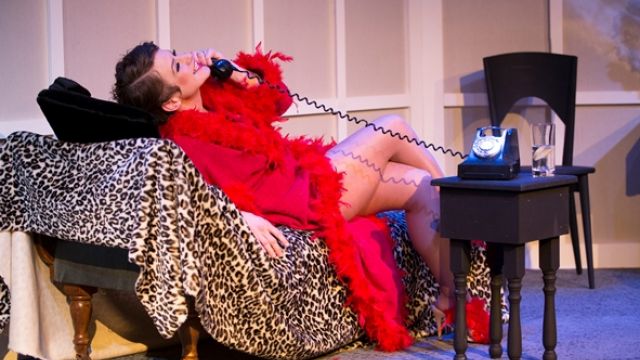The Women
The Women is a satiric commentary on the lives of the wealthy, pampered Manhattan socialites of the 1930s, their jealousies and the malicious gossip that shapes – and destroys – their relationships. Playwright, Clare Boothe Luce, who rose from being a menial worker to become a journalist, writer, member of Congress and ambassador to Italy, was a keen observer and recorder. Most of the rich ‘beauties’ she created for this play have few redeeming qualities. She described them thus: “The women who inspired this play deserve to be smacked across the head with a meat axe and that, I flatter myself, is exactly what I smacked them with”.
To the working class girls of the time she was a little kinder, and the play shows how household servants, beauticians, shop assistants, nurses and secretaries were looked down upon, or almost ignored, by the women they served.
In this production, director Deborah Jones uses 18 actors to portray the 37 characters who move move from New York drawing rooms, to beauty salons, department stores a maternity ward and for some, unfortunately, to the divorce ‘haven’ of Reno. Set designer John Cervenka achieves these scene changes with a smoothly operated revolve and cleverly made lattice-effect flats that correspond with flats on the stage itself and are highlighted by Tyrone Santika’s lighting. Props infer the period appropriately as, in the main, do the majority of the many costumes that must be a nightmare of organisation for stage manager Petra Vaculik and her crew.
 The play revolves around Mary Haines and the destructive gossip Sylvia Fowler. Helen Stuart plays Haines with dignity and carefully sustained emotion. Though she depicts the idealised wife and mother of the time she also emphasises the ‘spine’ that Luce wrote into this character. Stuart uses vocal control and variation to fine effect, especially in the scenes her little daughter, played with great charm by Jade Potts.
The play revolves around Mary Haines and the destructive gossip Sylvia Fowler. Helen Stuart plays Haines with dignity and carefully sustained emotion. Though she depicts the idealised wife and mother of the time she also emphasises the ‘spine’ that Luce wrote into this character. Stuart uses vocal control and variation to fine effect, especially in the scenes her little daughter, played with great charm by Jade Potts.
Jess Loudin poses and provokes as the nasty, narcissistic Sylvia Fowler. Loudin takes control of the stage in strident tones that leave no doubt of her malicious intent. There are moments, however, when softer pitches may have given more dimension and complexity to the bitchiness of the character.
Surrounding these characters are the rest of their ‘set’ – easily manipulated by Fowler and spurred along by Edith Potter (played by Emma Louise), whose many pregnancies and politically incorrect behaviour and pronouncements appealed to many in the opening night audience.

Joy Miller also appealed as thrice-married Countess De Large, especially in her cowboy gear in Reno; and Eleanor Ryan luxuriated in the character and gowns of femme fatale Crystal Allen.
Of the supporting cast and their many roles, Sandy Velini stood out, especially when playing the housekeeper Maggie with Mrs Haines’ maid, Jane (Jordan Keyes-Liley). As Liley tearfully relays the bitter ‘divorce’ quarrel between their employees, Velini’s caustic responses exemplify good comedic timing.
A comedy of manners, especially one such as this, where many of the characters are two dimensional, requires pace and tempo to push it along. The many scenes, the many characters, the many costumes – and, in this production, the many turns of the revolve – mean both cast and crew will have to work hard to keep hitting that pace and tempo and to sustain it.
Carol Wimmer
Photographer: Bob Seary
Subscribe to our E-Newsletter, buy our latest print edition or find a Performing Arts book at Book Nook.

